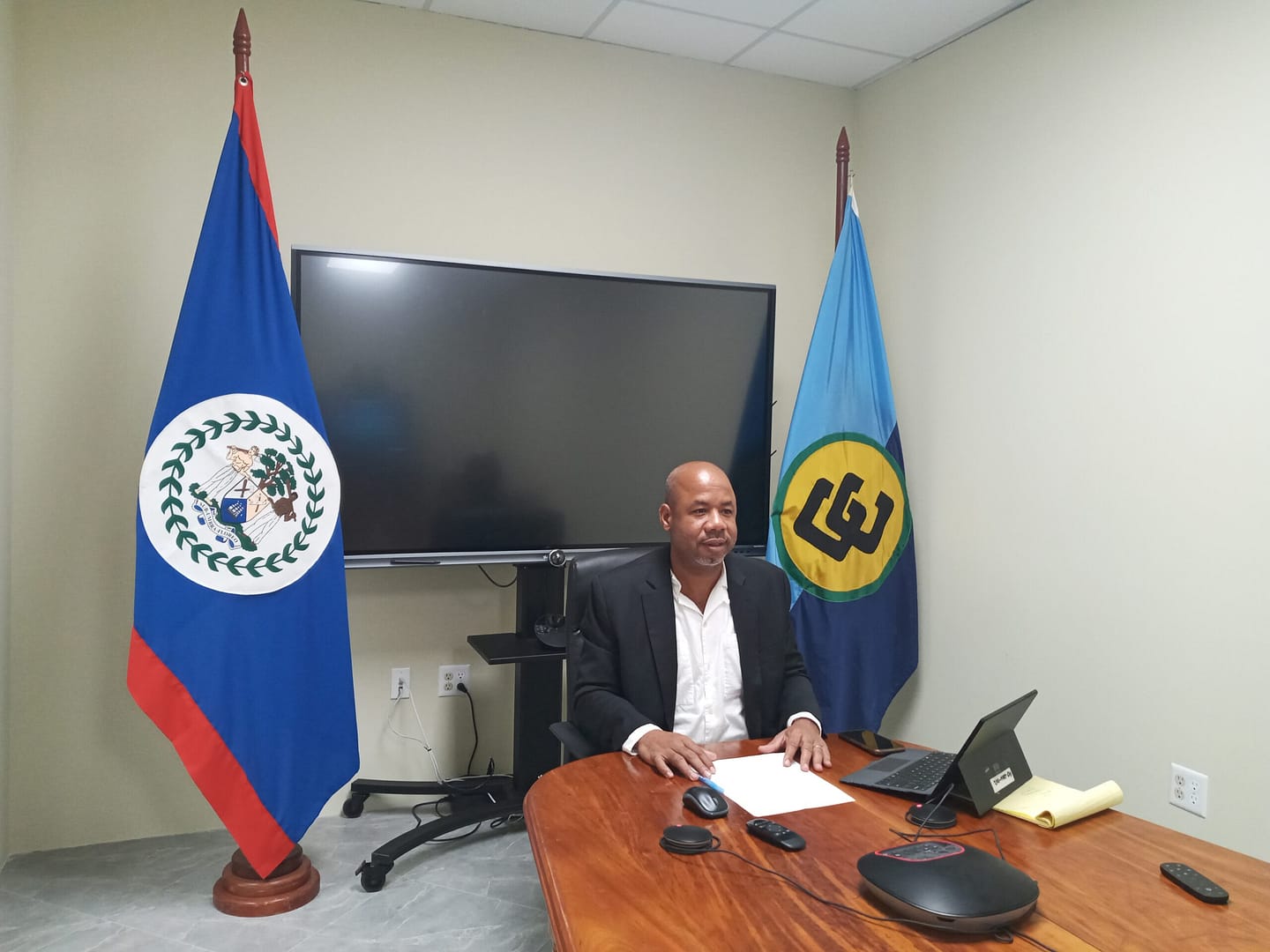
Amidst daunting findings recently made by scientists that the “world is on a trajectory to reach 1.5 ° C within the next twenty years relative to pre-industrial temperature under even the lowest emissions scenario”, CARICOM Ministers of Environment and Minsters of Foreign Affairs joined climate negotiators, and technical experts on Monday to discuss the critical issues for the Caribbean of keeping global temperature to at least the 1.5°C threshold. The workshop, taking place just 2 months before the COP 26 UN Climate Conference in Glasgow focused specifically on Article 6 of the Paris Agreement, “which deals with how countries can reduce their emissions using carbon markets” and such discussions are “to ensure that our political directorate is well apprised of Article 6, which remains one of the most complex components of the Paris Rulebook” according to Dr Colin Young, Executive Director of the CCCCC.
“We in the Caribbean are very cognizant of the dire ramifications for our way of life and indeed our very existence in a 1.5° world, Dr Young noted during his remarks to the Workshop. “This is not hyperbole. The IPCC Special 1.5 report is pellucid on the devastation that can be expected: more frequent and severe droughts and heatwaves, more frequent and extreme rainfall events, greater sea level rise and coastal erosions and flooding, 70-90 % reduction in coral reefs because of hotter oceans, leading to bleaching and die-off events, and stronger hurricanes.”
To demystify the unresolved issues around Article 6 of the Paris Agreement will take more than one workshop, because its complexity necessitates not just understanding the rules, but understanding its role in reducing Green House Gas Emissions (GHG), that is why Monday’s session was described as looking at the ‘ins and outs’ of Article 6.
“We recognize that with more robust rules, Article 6 can deliver more mitigation ambition and more financial support for adaptation. It is this recognition that has led CARICOM to prioritise Article 6 at COP 26 because it will address some of our critical issues”, says Dr Douglas Slater, Assistant Secretary General (ASG) of the CARICOM Secretariat. He continues, “CARICOM is its strongest, when it leverages its collective resources and intellect, as we have done in many multi-lateral endeavours including trade, development and of course, climate change”.
Dr Young supports the view by rationalizing that “under Article 6, countries with low emissions, like those in CARICOM, can sell or trade their carbon allowance, in excess of their emission reduction targets, to emitters who have a cap on GHG emissions”, thereby leading to a ‘win-win’ situation whereby the trading of carbon can stimulate “greater climate finance flows to CARICOM Member States who have large carbon terrestrial and blue carbon stocks”.
The virtual workshop lasted just 2.5 hours, and was attended by 10 of 15 CARICOM States, including, Antigua and Barbuda, Barbados, Belize Dominica, Jamaica, St. Lucia, St Kitts and Nevis, St. Vincent and the Grenadines, Suriname and Trinidad and Tobago represented by Ministers, Ambassadors, Permanent Secretaries, CEOs and other senior technical officers.
This is just one of 3 key remaining events scheduled on the COP26 roadmap, as the CCCCCs continues to coordinate CARICOM’s position on key agenda items of the much anticipated global conference slated to commence at the end of October.
The key presenter for the workshop was Mr Kishan Kumarsingh, Lead CARICOM Climate negotiator, who was supported by Mr Perumal Arumugan of the United Nations Framework for the Convention on Climate Change (UNFCCC).
Advertise with the mоѕt vіѕіtеd nеwѕ ѕіtе іn Antigua!
We offer fully customizable and flexible digital marketing packages.
Contact us at [email protected]

















Just a whole bunch of noise and fluff and male ego tossed about in the above article.
Comments are closed.